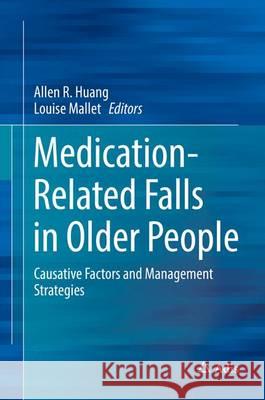Medication-Related Falls in Older People: Causative Factors and Management Strategies » książka
topmenu
Medication-Related Falls in Older People: Causative Factors and Management Strategies
ISBN-13: 9783319323022 / Angielski / Twarda / 2016 / 261 str.
Kategorie BISAC:
Wydawca:
Adis
Język:
Angielski
ISBN-13:
9783319323022
Rok wydania:
2016
Wydanie:
2016
Ilość stron:
261
Waga:
5.82 kg
Wymiary:
23.5 x 15.5
Oprawa:
Twarda
Wolumenów:
01











